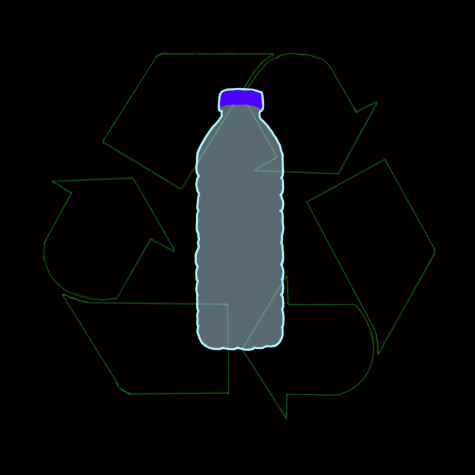U.S. government policies on climate change
December 15, 2021

Our nation, among many others, are trying to pass different legislation focusing on bettering our environment. Among these proposed legislations are the Bottle Bill, the Break Free from Plastic Pollution Act, and the CLEAN Future Act.
If you have ever seen a little sticker on a bottle with a return incentive of receiving five or ten cents back, you have first handedly experienced the Bottle Bill. A Bottle Bill, or a container deposit law, helps protect our environment by encouraging people to recycle their plastic bottles, reducing the use of plastic.
A Bottle Bill gives customers an incentive to return their bottles, which allows beverage companies to wash, refill, and resell bottles. To start the process, the retailer pays the distributor a deposit, which is then paid back by the consumer. This deposit is then granted back to the consumer when the bottle is returned to a retail store, redemption center, or a reverse vending machine. This makes a smart incentive for actually returning the bottle the consumer paid five or ten cents originally, considering how fast that five to ten cents adds up when a majority of households buy an immense amount of plastic bottles every week.
Bottle bills create a privately-funded infrastructure for beverage containers and make the producers and consumers responsible for their packaging waste. Focusing on solely beverage containers is the most impactful to our planet because beverage bottles compose 40-60% of litter. Also, recycling these bottles saves an immense amount of time and consumption of an enormous amount of energy and great quantities of greenhouse gas emissions.
Currently only 10 states put the Bottle Bill into effect, including California, Connecticut, Hawaii, Iowa, Maine, Massachusetts, Michigan, New York, Oregon, Vermont. In both 2011 and 2016, New Jersey campaigned for the Bottle Bill, however, it was rejected.
Valerie Wang (‘23), an advocate for the New Jersey Bottle Bill, believes that when an independent organization tried to push for the bottle bill, they didn’t gain enough support from the public, therefore when a NJ rep tried to get the bill passed it was rejected because there “was virtually not enough pressure.”
With that being said, Wang’s goal is to “educate the Cherry Hill community and beyond through social media,” more specifically the instagram account @njbottlebill, in order to gain a following for the bill similar to the CHPS later start times last summer.
With, hopefully, an increasing amount of support, Wang believes “that there is a much higher chance that the bottle bill will actually be implemented in NJ once it is re-proposed by a NJ representative once again.”
Although there is no national bottle bill implemented in the United States, The Break Free from Plastic Pollution Act and The CLEAN Future Act use the bottle bill’s incentive and method and are now up for consideration in Congress. Both Acts require similar game plans, but have different long term goals. For example, The Break Free from Plastic Pollution Act is a bill to amend the Solid Waste Disposal Act in order to prevent pollution from entering into animal and human food chains as well as waterways. Meanwhile, The CLEAN Future Act’s plan is to put the nation on a path to a net-zero greenhouse gas economy by 2050.